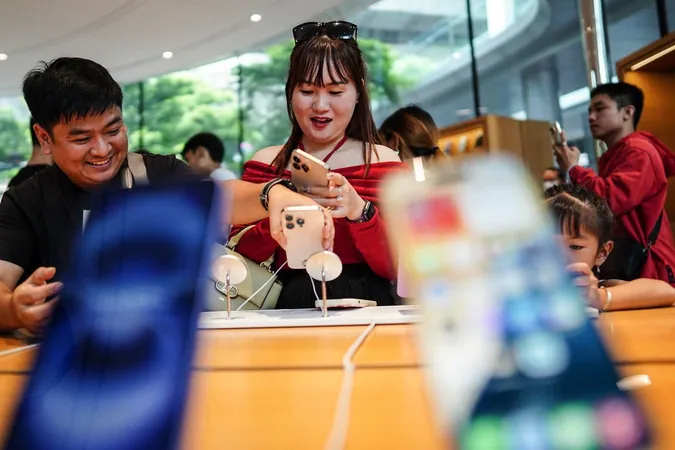
Apple's iPhone 16 Pro: An Iterative Upgrade with Hints of AI Potential
2024-09-22
Apple enthusiasts are gearing up to experience the latest iteration of the iPhone, the iPhone 16 Pro, which brings impressive specifications and an upgraded camera interface. However, not all is sunny in the world of Apple; this new release is mixed with unexpected disappointments.
In an update shared by Mark Gurman from the Power On newsletter, the rollout of Apple’s eagerly awaited AI feature—Apple Intelligence—will take place in three phases between now and March next year: iOS 18.1 in October, iOS 18.2 in December, and iOS 18.3 in March. This staggered timeline stands in contrast to Apple's ambitious rhetoric during its launch event, where they promoted the iPhone 16 as the first model designed "from the ground up for Apple Intelligence." Yet, Gurman points out that while the device boasts 8 gigabytes of memory essential for AI, the hardware itself has not seen a significant improvement over its predecessor, the iPhone 15 Pro.
While the iPhone 16 Pro offers some progression in specifications, including an enhanced A18 Pro chipset and better battery life for video playback, these changes feel more like following trends rather than leading them. Despite Apple’s reputation as a pioneer in smartphone technology, the iPhone 16 family may leave users wanting more.
A standout feature is the newfound emphasis on physical buttons, with the Action Button introduced in previous models now available across all iPhone 16 variants, and the addition of a new Camera Control button. This capacitive button doubles as a shutter button and offers multiple functions, such as exposure adjustments and filters, making it easy for photographers to interact with their camera settings. Forbes analyst David Phelan hailed this feature, calling it a potential game-changer for iPhone photography.
However, despite the excitement surrounding the Camera Control button, the truth remains: the iPhone 16 is an incremental upgrade rather than a revolutionary leap in technology. While other smartphone manufacturers, notably Google with its Pixel 8 series, are quickly adopting generative AI into their devices, Apple has opted for a more gradual approach. The delayed introduction of AI features leaves iPhone users lagging behind their Android counterparts, who are already experiencing advanced AI functionalities.
As the industry embraces generative AI, Apple’s slow rollout raises questions about their ability to compete effectively. With the iPhone 16 Pro lacking certain camera features and promised AI capabilities not arriving until later updates, there is an air of uncertainty regarding whether this vs. other brands will live up to Apple's storied legacy.
In summary, the iPhone 16 Pro offers delightful moments, particularly with its Camera Control button, but ultimately remains a modest update in a market ripe for innovation. As Apple navigates this transition toward AI integration, only time will reveal if they can captivate their dedicated fan base once again.




 Brasil (PT)
Brasil (PT)
 Canada (EN)
Canada (EN)
 Chile (ES)
Chile (ES)
 España (ES)
España (ES)
 France (FR)
France (FR)
 Hong Kong (EN)
Hong Kong (EN)
 Italia (IT)
Italia (IT)
 日本 (JA)
日本 (JA)
 Magyarország (HU)
Magyarország (HU)
 Norge (NO)
Norge (NO)
 Polska (PL)
Polska (PL)
 Schweiz (DE)
Schweiz (DE)
 Singapore (EN)
Singapore (EN)
 Sverige (SV)
Sverige (SV)
 Suomi (FI)
Suomi (FI)
 Türkiye (TR)
Türkiye (TR)